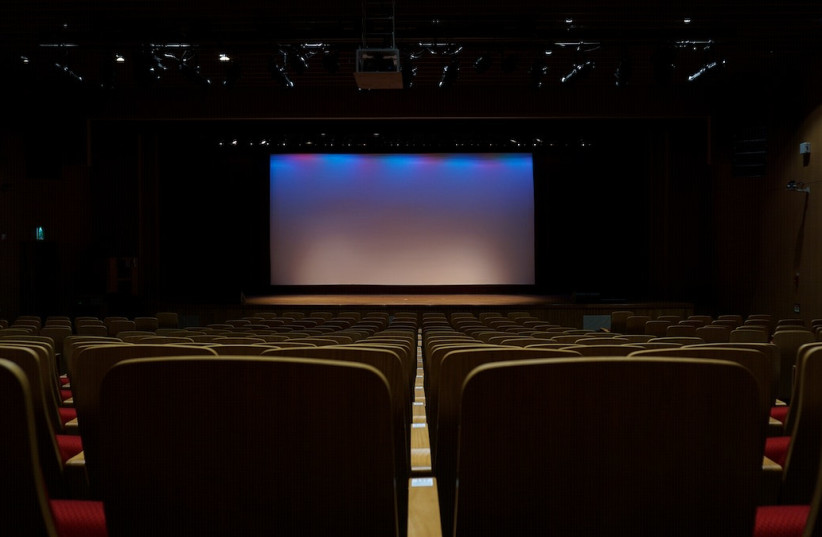Eitan Green, one of Israel’s most acclaimed directors and a beloved and much-appreciated professor emeritus at Tel Aviv University’s Steve Tisch School of Film and Television (who teaches at other places as well) has just released a new film, My Daughter My Love.
Green’s previous films include "Indoors" and "It All Begins at Sea," stories of families at turning points. In "My Daughter, My Love," Sasson Gabay, one of Israel’s greatest actors, plays Shimon, a devoted but bewildered father who tries to comfort his daughter, Alma (Sivan Levy), as she goes through a period of turmoil. Although her life seems ideal from the outside - she has just had a baby and is living with her husband (Ido Bartal) in Paris and studying animation - her inner world is chaotic and it is hard for her father to understand the source and depth of her problem.
Green feels that now is as good a time as any to release this character-driven dramatic story: “In Israel, it’s never the right time to release a film. I had a film that was released and the Lebanon War broke out... You never know what will be happening tomorrow.”
The idea for the film was on his mind for several years before he made it, he said. “People never really know how ideas come to them. But several of my films deal with father-son relationships – and this is a film about the relationship between a father and a daughter. There aren’t that many films about this – and usually, when there is, the daughter is a child.
“Maybe I thought of it because I have two daughters: one is 20 and one is 25,” he suggested. “The truth is that I never know where the idea for any film comes from, but they touch my life in some way.”
A key element to understanding the film
The concept of metamorphosis, of one character taking on other personae, is key to understanding the film, Green said. “The father is not meant to be there when his daughter’s marriage is unraveling. He undergoes a sort of metamorphosis from a father to a detective,” as he trails his daughter and her increasingly distant husband through Paris with his old friends (Evelin Hagoel and Albert Iluz), imagining at first that her husband is cheating on her and hoping to find evidence that this is the case.

“But deeper than that, as he tries to understand what his daughter is going through, he searches for the strength to truly understand her.” The film details his journey to comprehend, in a profound sense, that she has a very different experience and perception of life than his own.
“He’s a man who is well put together, from the way he dresses to the way he folds his clothes to put them away in the closet – and he finds himself in a messy situation, a situation of disharmony,” Green says. “He struggles to put everything back in order, in a way that is at times a bit naïve, but it comes from a place of warmth and affection: that he wants to help his daughter.
But he is limited in how much he can help her, how much he can truly understand her – the way we all are when we try to make order out of life.” As the film progresses, the father’s perceptions of his daughter and his approach to life are turned upside down.
“She is his beloved daughter, born late in life, and in the backstory, I think her mother [a character who passed away before the film begins] may have had a similar postpartum crisis,” which led to an intense bonding between the father and the daughter, making her into a kind of “daddy’s girl.”
Reasons for staging the movie in Paris
Green chose to set the story in Paris partly to isolate the father and daughter from their familiar surroundings. It isn’t easy for the father to leave behind his business in Israel and visit, and the daughter is cut off from friends who might have provided support for her. Paris looks lovely in the film, and it ought to provide an idyllic place to raise a child, but both of the characters feel disconnected from their surroundings.
Eventually, “through an emotional storm,” the father comes to realize that “he can’t run her life anymore,” the film’s director says. “She is tormented by her demons and they are out of the realm of what he can absorb and understand... It’s hard for us to accept that there are situations when we are unable to help our children and it’s very painful for a parent. It happens more often when they are older because when they are little, we can help them more - usually.”
But going through this process of trying to understand his daughter “causes him to open up to himself, to the parts of himself he hasn’t been dealing with. Alma gives him this, through the emotional storm she goes through, and she helps him go back to the drawing and art that he abandoned to have a more orderly life.”
Green credits his outstanding cast for making the filming of this complex story flow easily. “I was privileged to work with a very gifted group of actors... After I explained what I wanted, they would get it right away... Sasson is a great person, a fantastic actor: and very professional. Sivan does many things, such as directing, and knows what art is, how to create a character.”
The movie, which has comic moments, is ultimately a very dramatic and universal story about confronting pain and changing expectations that most people will be able to relate to. “There is something optimistic in the end,” Green concludes, “because with the pain, comes a transformation.”
